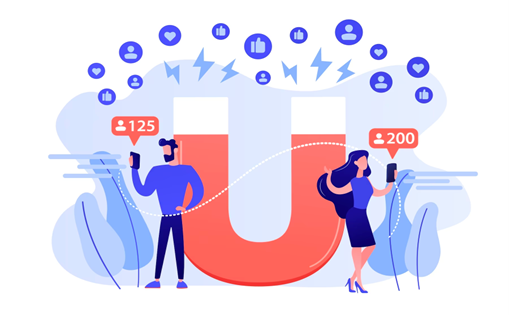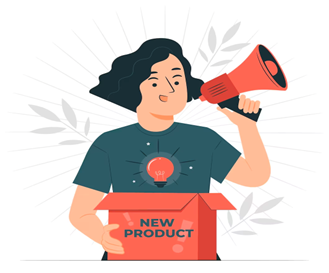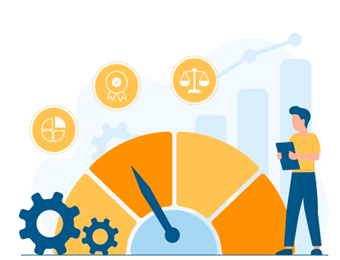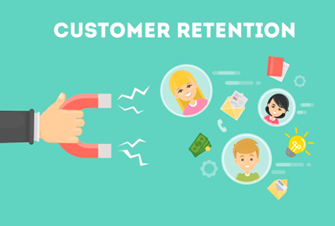Sales forecasting is an essential aspect of any business, as it helps predict future revenue and plan resources accordingly. With technological advancements, predictive analytics has emerged as a powerful tool to improve sales forecasting accuracy.
By analyzing historical data, predictive analytics can provide insights into customer behavior, market trends, and product performance, which can help businesses make informed decisions about their sales strategy.
There are various types of analytics in sales, including descriptive analytics, diagnostic analytics, predictive analytics, and prescriptive analytics. Descriptive analytics involves analyzing past data to gain insights into what has happened in the past.
Diagnostic analytics is used to identify the causes of past events. Predictive analytics is used to forecast future events based on past data, while prescriptive analytics provides recommendations on what actions to take to achieve a desired outcome.
By leveraging these different analytics types, businesses can better understand their customers and make data-driven decisions to improve their sales performance. Hence, in this blog, we’ll provide a more in-depth understanding of predictive sales analytics, it’s importance and a couple of examples and tools as well.
What is Predictive Sales Analytics?
Predictive sales analytics is a branch of data analytics that uses historical data and machine learning algorithms to forecast future sales performance. It involves analyzing large sets of data from various sources, such as customer behavior, market trends, and past sales, to identify patterns and predict future outcomes.
By leveraging predictive sales analytics, businesses can gain valuable insights into customer preferences and behaviors, identify potential sales opportunities, and optimize their sales strategy.
This helps businesses to improve their forecasting accuracy and make informed decisions about resource allocation and sales planning. Overall, predictive sales analytics enables businesses to maximize their sales performance and drive revenue growth.
Predictive Sales Analytics Examples
Predictive sales analytics examples are many, one of which is that it can be used is to understand the behavior of leads. By analyzing past data on lead behavior, such as website interactions, email opens, and social media engagement, predictive analytics can identify patterns and predict which leads are more likely to convert into customers.
This helps businesses to focus their resources on the most promising leads and tailor their sales strategy to meet their needs better.
Another example is using predictive analytics to target the correct leads. By analyzing data on customer demographics, buying history, and preferences, businesses can create buyer personas and target their marketing efforts toward those who are most likely to buy.
Predictive analytics can also help businesses to identify which channels and messaging are most effective for different types of customers, allowing them to optimize their sales strategy and improve conversion rates.
By leveraging predictive sales analytics, businesses can gain a competitive advantage by making data-driven decisions and improving their sales performance.
Importance of Predictive Sales Analytics
Predictive sales analytics plays a crucial role in the success of any business by providing valuable insights into customer behavior, market trends, and sales performance. By leveraging the power of data analytics and machine learning algorithms, businesses can improve their sales forecasting accuracy, target the right customers, and maximize customer lifetime value.
Some of the key benefits of predictive sales analytics are:
Increase the accuracy level of sales forecast
One of the key benefits of predictive sales analytics is that it can significantly increase the accuracy level of sales forecasting. By analyzing historical data and identifying patterns, predictive analytics tools can provide insights into future sales trends, allowing businesses to prepare an effective sales plan.
This helps businesses make informed decisions about resource allocation and sales strategy, which can improve their overall sales performance and revenue growth.
Improve lead generation
Another important benefit of predictive sales analytics is its ability to improve lead generation. By analyzing customer data and identifying patterns, businesses can identify which leads are most likely to convert into customers, allowing them to focus their resources on those leads and tailor their sales strategy to meet their needs better.
This can improve conversion rates and drive revenue growth while reducing customer acquisition costs.
Maximize Customer Lifetime Value
Predictive sales analytics can also help businesses to maximize customer lifetime value. By analyzing customer behavior, businesses can gain insights into which products and services are most popular, which customers are most valuable, and which customers are most likely to churn.
This helps businesses to tailor their sales and marketing efforts to cater to the needs of their customers, which can increase customer loyalty and drive revenue growth over the long term. Overall, predictive sales analytics is essential for businesses looking to improve their sales performance, increase customer engagement, and drive long-term growth.
Benefits of Predictive Sales Analytics
Here are a few benefits of predictive sales analytics:
Generate and score leads

One of the key benefits of predictive sales analytics is its ability to generate and score leads. By analyzing customer data and identifying patterns, businesses can accurately score their leads based on their likelihood to convert into customers.
This helps businesses to prioritize their sales efforts and focus on the most promising leads, improving their conversion rates and driving revenue growth. Predictive sales analytics can also help businesses to generate new leads by identifying potential customers based on their demographics, behavior, and interests.
Tailor your messaging

Predictive sales analytics can also help businesses to tailor their messaging to have a more personlized conversation with the consumer. By analyzing customer data and identifying patterns, businesses can gain insights into which channels and messaging are most effective for different types of customers.
This allows businesses to adjust their messaging accordingly and create more targeted and personalized marketing campaigns. Businesses can improve customer engagement and drive higher conversion rates by tailoring their messaging.
Launch new products with confidence

Another important benefit of predictive sales analytics is its ability to help businesses launch new products with confidence. By analyzing historical data and identifying patterns, businesses can predict how well a new product is likely to perform and adjust their sales and marketing strategy accordingly.
This helps businesses to reduce the risk of product failure and maximize the return on investment for new product launches. Predictive sales analytics can also help businesses to identify which features and benefits are most important to customers, allowing them to create products that better meet their needs and preferences.
Other Uses of Predictive Analytics in Sales Forecasting
If you’re wondering how to predict future sales, predictive sales forecasting is the answer. Here are a few uses of analytics in predictive forecasting:
Lead Scoring

Predictive analytics is highly useful in lead scoring by analyzing the behavioral data of potential customers and predicting their likelihood to convert. By assigning scores to leads, businesses can prioritize their sales efforts and focus on the most promising opportunities, improving their sales performance and conversion rates.
Targeted Discounts

Predictive analytics can help businesses plan targeted discounts by analyzing customer behavior and preferences. By understanding which discounts are most likely to resonate with different segments of their audience, businesses can create targeted promotions that are more likely to drive sales and increase customer loyalty.
Customer Retention Through Relevant Messaging

Predictive analytics can also help businesses retain customers by delivering personalized and relevant messaging. By analyzing customer data and behavior, businesses can gain insights into what motivates their customers and create targeted marketing campaigns that address their specific needs and preferences.
This can help businesses build stronger relationships with their customers and increase customer retention rates.
Upselling and Cross-Selling

Predictive analytics can help businesses identify upselling and cross-selling opportunities by analyzing customer data and predicting their needs and preferences. By recommending relevant products and services to their customers, businesses can increase their revenue per customer and improve their sales performance.
Predictive analytics can also help businesses identify which customers are most likely to respond to upsell and cross-sell offers. This allows them to optimize their sales strategy and improve their overall profitability.
Predictive Analytics Sales Forecasting Tools
If you’re planning to invest in a predictive analytics sales forecasting tool, here are some options you can choose from:
Arena Calibrate
Arena Calibrate is a robust platform for data analytics that offers a broad spectrum of tools and functionalities aimed at assisting businesses in analyzing and enhancing their data.
Key features:
- Campaign Insights: The feature of campaign insights offered by Arena Calibrate furnishes businesses with a comprehensive analysis of their marketing campaigns, enabling them to assess the efficacy of their marketing strategy. This capability facilitates businesses in making data-driven decisions to enhance their marketing tactics.
- Data Integration: By offering a smooth data integration solution, Arena Calibrate empowers businesses to unify data from multiple sources in a single platform. This functionality offers businesses a comprehensive perspective of their data, which facilitates them to take informed decisions based on the data insights.
- Data Warehousing: The provision of a data warehousing solution by Arena Calibrate enables businesses to centralize and manage vast volumes of data in a single location. This capability assists businesses in streamlining their data management practices, thus enhancing their ability to scrutinize and optimize their data more efficiently.
- Data Visualization: The robust data visualization tool provided by Arena Calibrate empowers businesses to produce dynamic and interactive representations of their data. This functionality facilitates businesses in gaining a comprehensive overview of their data, thereby enhancing their capacity to identify trends and patterns.
Pros
- Third-party data representation for multiple platforms
- Integrates with various platforms like Facebook ads, Google Ads, Google Analytics, LinkedIn Ads, etc.
- All data is easily accessible from a centralized dashboard for informed decision-making on campaigns
- Offers full-screen experience for better visibility and ease of use
Cons
- Waiting period of 24 hours for data to start showing up on the dashboard
- Cannot create goals for each metrics.
Pricing
Arena Calibrate provides different pricing plans tailored to the requirements of businesses. The tool offers myriad options and features, starting with a freemium or forever free plan, known as Arena Lite, and goes up to Arena Business and Arena Pro.
Additionally, businesses can choose customized managed-service plans. Arena Calibrate also provides a free trial for businesses who want to try out the platform before selecting a pricing plan.
Clari
Clari is a revenue operations and predictive sales forecasting platform that uses AI and automation to help businesses improve their sales performance. Here's an overview of its key features, pros and cons, and pricing:
Key Features:
- Predictive forecasting and pipeline management
- Deal and opportunity management
- Activity and engagement tracking
- Sales performance analytics and reporting
- AI-powered forecasting and predictive insights
- Integration with popular CRMs like Salesforce, Microsoft Dynamics, and Oracle Sales Cloud
Pros:
- Easy-to-use interface with customizable dashboards and reporting
- Advanced AI and automation features for accurate predictive sales forecasting and performance insights
- Integration with popular CRMs for seamless data management and tracking
- Real-time data updates and notifications for improved sales visibility and decision-making
- Provides a unified platform for revenue operations and sales teams, improving collaboration and efficiency.
Cons:
- The price can be quite high, which may not be suitable for small businesses
- Some users have reported difficulty with customizing reports and data fields
- Some users have reported that AI forecasting models can sometimes provide inaccurate predictions.
Pricing:
Clari offers three pricing tiers - Essentials, Professional, and Enterprise - with customized pricing based on business needs and requirements. As of May 2023, the starting price for Clari's Essentials plan is $50 per user per month.
For the Professional and Enterprise plans, pricing is available upon request.
Sales Cloud Einstein
Sales Cloud Einstein is a Salesforce platform that uses artificial intelligence (AI) to help businesses improve sales performance and automate sales processes. Here's an overview of its key features, pros and cons, and pricing:
Key Features:
- Predictive lead and opportunity scoring
- Automated data entry and updates
- Sales performance analytics and reporting
- AI-powered forecasting and predictive insights
- Integration with popular third-party apps like LinkedIn Sales Navigator and Microsoft Outlook
- Customizable dashboards and reporting
Pros:
- AI-powered insights and automation help to improve sales performance and efficiency
- Integration with popular third-party apps for improved data management and tracking
- Customizable dashboards and reporting for improved visibility and decision-making
- Provides a unified platform for sales teams and managers to collaborate and track performance
Cons:
- Salesforce can be complex and may require some training for new users
- The price can be quite high, which may not be suitable for small businesses
- Some users have reported that the AI models can sometimes provide inaccurate predictions
Pricing:
Sales Cloud Einstein is available as part of Salesforce's Sales Cloud Enterprise and Unlimited editions, which start at $150 per user per month and $300 per user per month, respectively. Customized pricing is also available for businesses with unique needs and requirements.
Salesforce offers a free trial of Sales Cloud Einstein for interested businesses to try before committing to a subscription.
Netsuite CRM
NetSuite CRM is a cloud-based customer relationship management (CRM) system that offers a range of features to help businesses manage their sales, marketing, and customer service operations. Here's an overview of its key features, pros and cons, and pricing:
Key Features:
- Lead and opportunity management
- Sales forecasting and reporting
- Marketing automation and email campaigns
- Customer service and support management
- Mobile access for sales reps on-the-go
- Integration with other NetSuite products like ERP and ecommerce
Pros:
- Offers a full suite of sales, marketing, and customer service tools in one platform
- Customizable dashboards and reporting for improved visibility and decision-making
- Easy integration with other NetSuite products for a unified business management solution
- Scalable to fit businesses of all sizes
Cons:
- Some users have reported that the user interface can be complex and difficult to navigate
- The pricing can be higher compared to other CRM systems
- Customization options may require additional technical expertise or resources
Pricing:
NetSuite CRM is available as part of the NetSuite SuiteSuccess CRM edition, which starts at $99 per user per month. Customized pricing is also available for businesses with unique needs and requirements.
NetSuite offers a free trial of its CRM system for interested businesses to try before committing to a subscription.
Hubspot
HubSpot is a cloud-based CRM system that offers a variety of features for sales, marketing, and customer service teams. Here's an overview of its key features, pros and cons, and pricing:
Key Features:
- Lead and deal tracking
- Marketing automation and email campaigns
- Customer service ticketing and chat
- Customizable sales pipelines and reporting
- Integration with other HubSpot products like Marketing Hub and Service Hub
Pros:
- Offers a user-friendly and intuitive interface
- Provides a variety of features for businesses of all sizes
- Offers a free version with basic features
- Provides a comprehensive solution for managing customer interactions across multiple channels
Cons:
- Some users have reported that the reporting and analytics features can be limited
- Advanced features like automation and integrations may require a higher subscription tier
- The pricing can be higher compared to other CRM systems
Pricing:
HubSpot offers a free version with basic features like lead and deal tracking, contact management, and email campaigns. Paid subscription plans start at $50 per user per month for the Starter plan, which includes additional features like automation and sales pipelines.
More advanced plans like the Professional and Enterprise plans include additional features like predictive lead scoring and custom reporting. HubSpot also offers customized pricing for businesses with unique needs and requirements.
Conclusion
In conclusion, predictive analytics sales forecasting has become an essential tool for sales forecasting in today's competitive business environment. With the ability to accurately forecast sales, target the right customers, and increase customer lifetime value, predictive analytics tools can provide businesses with a significant competitive advantage.
When choosing sales analytics software, it's important to consider factors like the features and functionality that are most important for your business, ease of use, and pricing. It's also important to consider the level of customer support provided by the vendor and any integrations with other software tools your business may be using.
By carefully evaluating these factors, businesses can find the right predictive analytics solution to help them achieve their sales forecasting goals.
FAQs on Predictive Sales Analytics
How does predictive sales analytics software benefit your sales engagement strategy?
Predictive sales analytics software can benefit your sales engagement strategy in several ways:
- Improved lead generation by targeting promising leads and increasing sales efficiency.
- More accurate sales forecasting through historical data analysis.
- Tailored messaging and communications based on audience preferences and behaviors.
- Targeted discounts and promotions by analyzing customer data.
- Improved customer retention through personalized messaging, promotions, and experiences.
How would predictive analytics assist in forecasting sales by product line?
Predictive analytics helps forecast sales by analyzing historical data, identifying trends, and making predictions. It can determine successful product lines and factors contributing to sales. By using various data inputs, such as sales, customer, market, and economic data, predictive analytics models create forecasts that consider variables like seasonality and customer behavior.
For example, if sales of a product line increase during specific times, predictive analytics can identify and forecast these seasonal trends. It also identifies products likely to sell well to specific customer segments. Overall, predictive analytics improves sales forecasting, identifies growth opportunities, enhances data-driven decision-making for sales teams, and drives revenue growth.
How can predictive analytics improve performance?
Predictive analytics can improve performance in a number of ways:
- It identifies trends and patterns in complex data sets, enabling actionable insights and data-driven decisions.
- It enhances decision-making by forecasting opportunities and risks.
- It optimizes resource allocation to maximize efficiency.
- It improves the customer experience through personalized marketing and communications.
- It also increases revenue by identifying growth opportunities and optimizing pricing and marketing strategies.
Is forecasting considered predictive analytics?
Forecasting can be considered a subset of predictive analytics. Predictive analytics involves using statistical and machine learning techniques to make predictions about future outcomes, whereas forecasting specifically involves using historical data to predict future trends and patterns.
In other words, forecasting is one application of predictive analytics that focuses on predicting future values of a specific variable or set of variables based on historical trends and patterns.
How does predictive analytics increase marketing and sales efficiency?
Predictive analytics can increase marketing and sales efficiency in several ways:
- Targeted marketing: Identify the target audience and tailor marketing efforts accordingly.
- Lead scoring: Prioritize leads based on conversion likelihood to focus sales efforts.
- Personalization: Create personalized experiences by analyzing customer data and delivering targeted messaging, offers, and recommendations.
- Sales forecasting: Accurately forecast sales to plan and allocate resources effectively.
- Improved customer retention: Identify factors contributing to customer churn and proactively retain customers.




